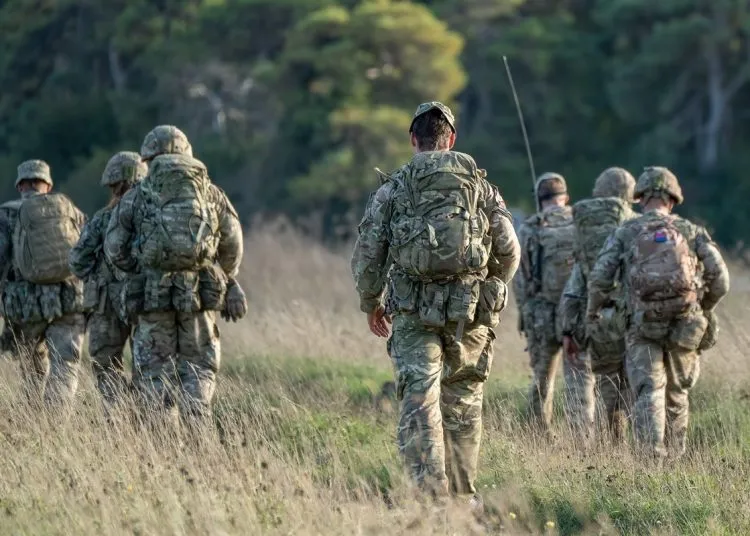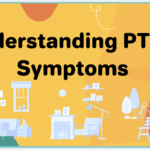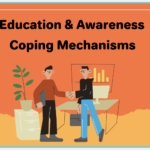Military trauma refers to the psychological and emotional stress that armed forces personnel experience as a result of their service. In the context of UK military personnel, this trauma can arise from a variety of sources, including exposure to combat situations, witnessing the death or injury of fellow soldiers, and dealing with the aftermath of military operations. Such experiences are not confined solely to the battlefield; they can also result from other high-stress situations, including training exercises or humanitarian missions where personnel encounter distressing scenarios.
The prevalence of trauma among UK service members is substantial. Research indicates that a significant number of military personnel will experience some form of trauma during their careers. Estimates suggest that nearly one in five veterans may encounter post-traumatic stress disorder (PTSD) or other combat-related psychological issues. These psychological repercussions can stem from both direct exposure to life-threatening situations and indirect effects, such as moral injury, which arises from the guilt of actions taken or not taken during service.
A critical aspect of understanding military trauma is acknowledging that its impact extends beyond the individual. Families and communities of service members may also experience its effects, stressing the importance of holistic approaches to treatment and support. Military trauma often manifests in various mental health conditions, such as anxiety, depression, and substance abuse, often leading to challenges in reintegration to civilian life.
As we delve further into this topic, it becomes vital to explore not only the types of trauma experienced by UK military personnel but also the broader implications these experiences have on their mental health and overall well-being. A comprehensive understanding of military trauma is essential for developing effective interventions and support systems tailored to the unique needs of veterans and active service members.
Types of Traumatic Events Faced by Service Members
UK military personnel are subjected to a variety of traumatic events throughout their service, each with distinct psychological impacts. The most prominent among these is combat exposure, which refers to the direct experience of engaging in warfare. Combat scenarios often involve life-threatening situations, high-stress environments, and the need for split-second decision-making. This type of exposure can lead to conditions such as Post-Traumatic Stress Disorder (PTSD), anxiety disorders, and, in some cases, depression. The trauma of combat is not solely due to physical threat; the moral and ethical dilemmas faced in war can also contribute to a service member’s psychological strain.
Another significant type of trauma involves witnessing violence or the aftermath of violent events. Service members may observe the injuries or deaths of colleagues or civilians, which can create feelings of helplessness and horror, manifesting as intrusive memories or flashbacks. The cumulative effect of regularly witnessing violence can lead to chronic psychological distress and affect the individual’s ability to function emotionally in everyday life.
Moreover, experiencing personal loss—such as the death of a close comrade—can profoundly impact mental health. This type of trauma can induce severe grief, guilt, and survivor’s remorse, complicating the process of mourning. Such losses can tear at the fabric of relationships among service members, leading to increased isolation and emotional pain.
Lastly, deployment-related stressors, including the fear of injury or death, the challenges of adapting to life in a war zone, and the uncertainty about the safety of loved ones back home, contribute to a landscape filled with trauma. Understanding these diverse sources of trauma is essential for addressing the mental health needs of UK military personnel and providing appropriate support and resources.
Understanding the Psychological Impact of Trauma
Military service, particularly in conflict zones, can lead to significant psychological effects due to exposure to trauma. Veterans often face a range of mental health conditions attributed to their experiences during service. One of the most prevalent conditions is Post-Traumatic Stress Disorder (PTSD), which affects an estimated 10-30% of veterans who have served in combat. PTSD is characterized by symptoms such as flashbacks, nightmares, severe anxiety, and uncontrollable thoughts about the traumatic event.
Beyond PTSD, many veterans also experience anxiety disorders, which can manifest as persistent worry, panic attacks, or social anxiety. Research indicates that approximately 20% to 30% of veterans may develop some form of anxiety disorder after deployment. This psychological impact can hinder their ability to reintegrate into civilian life, affecting relationships, employment, and overall quality of life.
Depression is another common mental health condition observed among veterans exposed to trauma. Studies show that about 20% of veterans experience significant depressive symptoms, which can lead to feelings of hopelessness, fatigue, and a lack of interest in activities once found enjoyable. The combination of these mental health issues can create a cycle of distress that complicates recovery and coping mechanisms.
The implications of these findings are profound. The Royal British Legion reported that over 50% of veterans who sought help for mental health problems stated that their experiences during military service had a lasting impact on their psychological wellbeing. Recognizing the psychological impact of trauma is essential for facilitating effective support systems and treatment options for veterans. Mental health support tailored specifically to the needs of veterans can significantly improve their outcomes, fostering pathways to recovery and reintegration into society.
Personal Accounts from Veterans
Understanding the profound impact of military service on mental health is crucial, particularly through the lens of firsthand accounts from veterans. Many ex-service members have bravely shared their stories of trauma and its enduring effects, offering invaluable insights into the complexities surrounding recovery. Their experiences serve as a testament to the challenges faced during and after service, illustrating how exposure to traumatic events can manifest in various mental health concerns.
One veteran, who served in combat zones, recounted the vivid memories of conflict that continue to haunt him. Despite years passing since his discharge, he experiences flashbacks and nightmares that interfere with his daily life. This testimony highlights PTSD, a common condition among veterans, and how it can persist long after their military duties have ended. The individual expressed feelings of isolation and frustration, emphasizing the struggle of reintegrating into civilian life while battling invisible wounds.
Another ex-service member described overcoming obstacles related to depression and anxiety after experiencing a serious vehicular accident during service. The individual noted that seeking help was a vital step in recognizing and addressing his mental health issues. He encouraged other veterans to break the silence surrounding their experiences and to seek support, emphasizing that healing is a journey that often requires professional assistance.
Such personal testimonies not only bring to light the psychological toll on veterans but also foster a deeper understanding of the resources necessary for recovery. Their stories collectively underscore the importance of community and support systems, highlighting that acknowledging and discussing mental health challenges is pivotal in the healing process. As these accounts illustrate, the path to recovery may be difficult, yet it is essential for veterans to share their experiences and connect with others facing similar struggles.
Barriers to Mental Health Support for Veterans
The mental health challenges faced by veterans are significant and multifaceted, often compounded by various barriers that hinder their access to essential support services. One of the foremost obstacles is the stigma surrounding mental health issues, which remains a pervasive concern within military and veteran communities. Ex-service members may fear being judged or labeled as weak if they express their struggles, leading them to avoid seeking help altogether. This stigma often originates from military culture, which traditionally values resilience and self-reliance. Consequently, many veterans endure mental health issues in silence, exacerbating their condition.
Additionally, there is a considerable lack of awareness regarding the available mental health resources tailored for veterans. Many ex-service members are unaware of the various support programs, outreach initiatives, and counseling services specifically designed to address their unique needs. This lack of knowledge can lead to missed opportunities for assistance, leaving veterans to navigate their challenges independently. Educational campaigns aimed at informing veterans about available resources are crucial in bridging this knowledge gap, but they often receive insufficient attention.
Moreover, the issue of insufficient resources further complicates the landscape of mental health support for veterans. With an increasing number of ex-service members seeking help, mental health services can become overwhelmed, leading to long waiting times and limited availability of care. This scarcity can discourage veterans from pursuing treatment, leaving them without the support necessary to cope with trauma-related issues. Addressing these barriers is vital for improving mental health outcomes among veterans, which requires collaborative efforts between government agencies, healthcare providers, and veteran organizations to create effective support systems that are accessible and sensitive to the specific challenges faced by those who have served in the military.
Available Support and Treatment Options
Veterans of the UK military who experience trauma-related mental health issues have access to a variety of support systems and treatment options. One of the primary resources for veterans is the National Health Service (NHS), which provides comprehensive mental health services tailored to the needs of ex-service personnel. The NHS offers a range of treatments, including psychological therapies, medication, and counseling aimed at addressing conditions such as post-traumatic stress disorder (PTSD), depression, and anxiety, which are commonly reported among veterans.
In addition to NHS services, numerous charitable organizations are dedicated to assisting veterans with their mental health challenges. Notable organizations like the Veterans Mental Health Alliance and Combat Stress offer specialized services that include helplines, residential treatment, and outreach programs. These charities not only provide immediate support but also focus on long-term recovery strategies, helping veterans reintegrate into civilian life effectively.
Peer support groups represent another vital source of assistance. These groups connect veterans who share similar experiences and can offer understanding and camaraderie. Such spaces allow individuals to discuss their traumas openly, facilitating healing through shared experiences. Engagement in peer-led initiatives can significantly reduce feelings of isolation and foster a sense of community among veterans.
Furthermore, evidence-based treatments have proven effective in managing trauma-related mental health issues. Cognitive Behavioral Therapy (CBT) and Eye Movement Desensitization and Reprocessing (EMDR) are among the most researched therapeutic approaches. These methods have shown significant success in alleviating symptoms associated with PTSD and other trauma-related disorders, emphasizing the importance of seeking professional assistance.
In summary, UK veterans have multiple avenues for support and treatment for trauma-induced mental health conditions. The integration of NHS services, charitable organizations, and peer support illustrates a comprehensive approach to facilitating recovery for those who have served in the military.
The Role of Family and Community in Recovery
The recovery process for ex-service members dealing with mental health challenges stemming from military service is profoundly influenced by their family and community. A robust social support system can significantly affect a veteran’s ability to cope and thrive after experiencing trauma. Family members are often the first line of defense in helping veterans navigate their emotional struggles. They provide a familiar environment in which veterans can express their feelings without judgment, facilitating open dialogue about experiences and fears stemming from service-related trauma.
Family understanding is essential; when family members educate themselves about the specific mental health issues that ex-service members may face, such as PTSD or depression, they become more equipped to offer the necessary support. Simple actions, such as listening, being present, and fostering a sense of normalcy, can help combat feelings of isolation and inadequacy that many veterans encounter. Moreover, these supportive family dynamics encourage resilience and empowerment, which are crucial for the recovery journey.
Beyond the family unit, community initiatives play an integral role in supporting veterans’ mental health. Local organizations and veteran groups often provide programs that focus on reintegrating veterans into society, offering opportunities for social engagement, skills training, and recreational activities. Such initiatives help create connections among veterans and facilitate the development of a shared understanding, thereby reducing feelings of estrangement commonly experienced post-service.
Community support fosters a culture of acceptance and awareness, making it easier for veterans to seek help when they encounter difficulties. Peer support groups can also be invaluable, as they bring together individuals with similar experiences, allowing veterans to share coping strategies and success stories. Ultimately, both family and community support are foundational in enhancing the mental health outcomes of ex-service members, guiding them toward a successful transition to civilian life.
Long-term Implications of Trauma on Mental Health
The long-term implications of trauma on the mental health of ex-service members are profound and multifaceted. Veterans often encounter persistent mental health conditions as a result of their experiences during service, including post-traumatic stress disorder (PTSD), depression, and anxiety disorders. Research indicates that the prevalence of these conditions in military veterans can be significantly higher compared to the general population. The stressful environments and life-threatening situations faced during military service can create deep psychological scars that manifest long after the service has ended.
For many veterans, the journey of reintegration into civilian life poses substantial challenges. The transition from a highly structured military environment to civilian society can lead to feelings of isolation and a sense of disconnection. This dislocation can exacerbate existing mental health issues or lead to the development of new conditions. Many ex-service members report difficulties in finding employment, establishing interpersonal relationships, and re-engaging with their communities. The stigma surrounding mental health in society may further hinder these individuals from seeking the necessary treatment or support.
Ongoing monitoring and support for veterans are crucial in managing the long-term effects of trauma. This support can take various forms, including counseling services, peer support programs, and access to mental health professionals who specialize in military-related issues. Early intervention is key; ensuring that ex-service members receive proper mental health care can mitigate the risk of developing chronic conditions and improve overall quality of life. Additionally, fostering a supportive community that understands the nuances of military service can aid in the healing and reintegration process.
Conclusion: Moving Forward with Awareness and Action
As we reflect on the complex relationship between military service and mental health, it becomes increasingly evident that exposure to trauma during service significantly impacts the mental well-being of veterans. Throughout this discussion, we have examined the various psychological issues that arise due to military experiences, including PTSD, anxiety, and depression. These conditions not only affect the individuals who have served but also their families and communities, underscoring the widespread ramifications of military trauma.
Furthermore, the stigma surrounding mental health issues often prevents veterans from seeking the necessary help and support they require. This cultural barrier contributes to the enduring struggles faced by those who have served in the armed forces. It is essential for society to recognize that mental health challenges are not a sign of weakness but rather a consequence of confronting extraordinary circumstances in defense of their country.
In light of these insights, there is an urgent need for increased awareness regarding military trauma. Policymakers, mental health professionals, and society at large must collaborate to create comprehensive strategies that promote understanding and support for veterans. This includes improving access to mental health services, funding research on the effects of military service on mental health, and implementing educational programs that inform the public about the challenges veterans face.
Ultimately, our collective action can foster an environment where military personnel feel empowered to seek help. By prioritizing mental health support for veterans, we honor their service and commitment. Moving forward, it is crucial that we advocate for systemic changes that address these issues, ensuring that all individuals who have served receive the quality care and understanding they deserve. Together, we can facilitate healing and resilience in the lives of our veterans.





